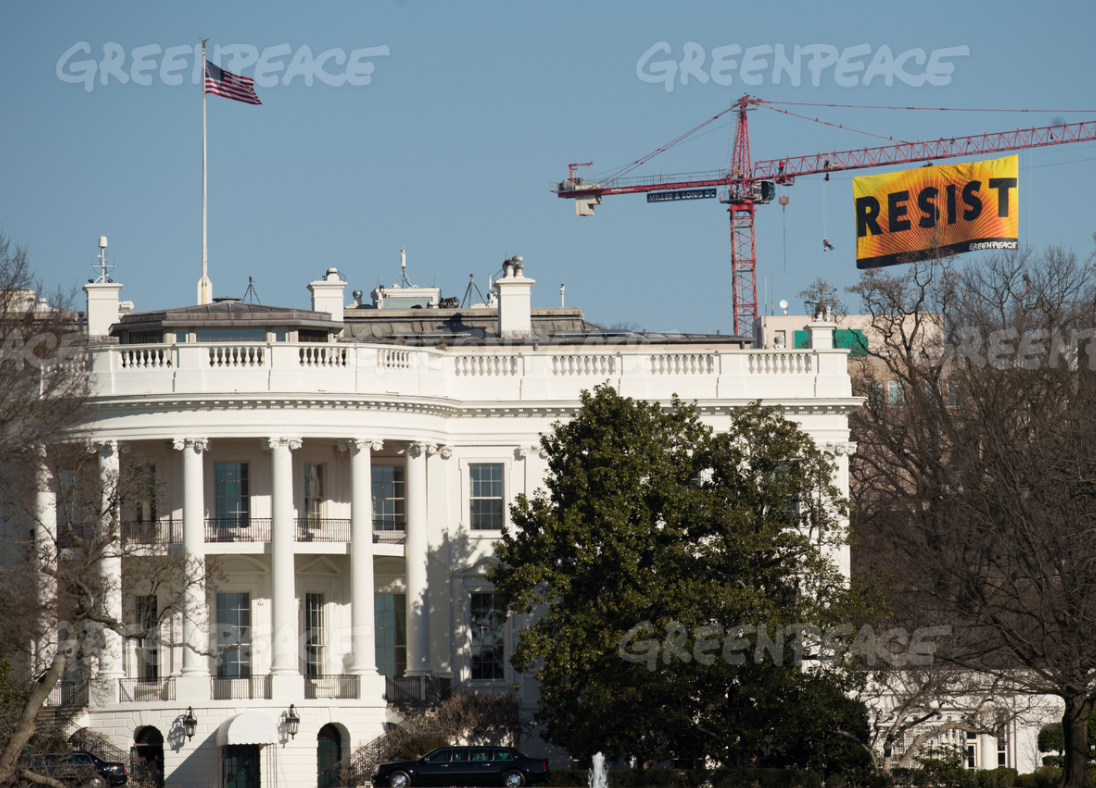Support strong Canadian climate journalism for 2025
A racketeering lawsuit launched by multinational forestry giant Resolute Forest Products against Greenpeace should be heard in California, an American court has ruled.
Amid a ramped−up public relations offensive by both sides, a district court in Augusta, Ga., found that Montreal−based Resolute had failed to show why the $300−million lawsuit should be held in the state.
Both sides were quick to put their own spin on the ruling, with Greenpeace calling it a major victory and Resolute characterizing it as of little consequence.
"We have said all along that Greenpeace activities in Georgia constituted legitimate advocacy to protect the boreal forest, not criminal conduct," said Tom Wetterer, the group’s lawyer in the United States.
"We are confident that when the California court examines our motions to dismiss, the court will reach the same conclusion regarding the work we have done elsewhere: this is all protected speech."
Resolute vice−president Seth Kursman said the ruling would have little impact on the overall case.
"The Georgia federal court declined to dismiss the case on the merits, and our complaint alleges overwhelming evidence and compelling claims that will prevail in any venue," Kursman said. "The judge’s decision was limited entirely and explicitly to whether Resolute alleged fraud or extortion specifically within Augusta."
The lawsuit stems from a Greenpeace campaign called "Resolute: Forest Destroyer" that alleged the company was destroying boreal forests in northern Ontario and Quebec. Greenpeace apologized in March 2013 for falsely accusing Resolute of logging critical caribou habitat in Quebec, but the company soon filed a $7−million defamation lawsuit — that is still ongoing — in Ontario.
In May 2016, Resolute filed a second suit in Georgia under laws normally used to combat organized crime. The suit, which seeks to brand Greenpeace as a criminal enterprise, accused the environmental group of trying to destroy Resolute’s business.
Among other things, Resolute complained that Greenpeace activists had travelled to Augusta to protest at a shareholder meeting. But Chief Judge Randal Hall said the plaintiffs had failed to show anything defamatory occurred.
"Nor do they provide a factual basis from which to infer that (Greenpeace) committed fraud or extortion before, during, or after the trip," Hall wrote. "The allegations in the complaint, at best, support the inference that defendants organized and held a protest in Augusta."
Randal agreed with Greenpeace that the case should be heard in the Northern District of California because key players live and work in San Francisco.
Priyanka Vittal, Greenpeace’s lawyer in Canada, said the ruling supports the organization’s view that Resolute was allegedly "forum shopping" — trying to find a favourable legal jurisdiction to press its case. Greenpeace argues Resolute chose Ontario courts for its other lawsuit because Quebec had legislation barring lawsuits aimed at silencing critics contrary to the public interest.
In recent days, both sides have appealed to the court of public opinion.
Greenpeace produced a presentation under the banner: "Clearcutting Free Speech: How Resolute Forest Products is Going to Extremes to Silence Critics of its Controversial Logging Practices." Among other things, Greenpeace argues Resolute is trying to criminalize environmental advocacy.
Resolute promptly issued public rebuttals in which it portrays itself as a company willing to stand up to eco−bullies and strike a blow for corporate victims of Greenpeace’s tactics.
Despite the rancour, Vittal said Greenpeace hoped the two sides could find a way to settle the dispute.
"Our ideal situation is that we can find a mutually respectful base outside of the legal system to work with them," Vittal said.




Comments